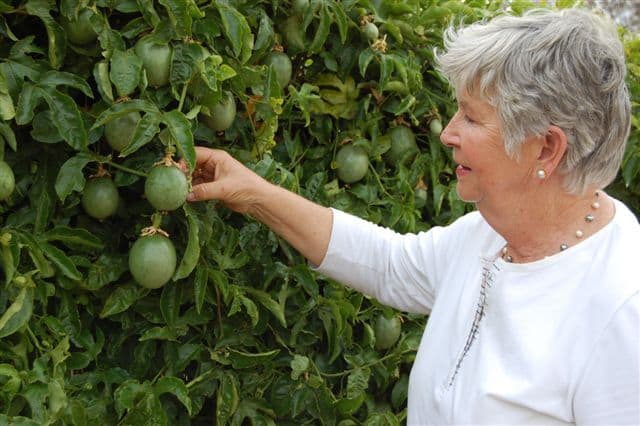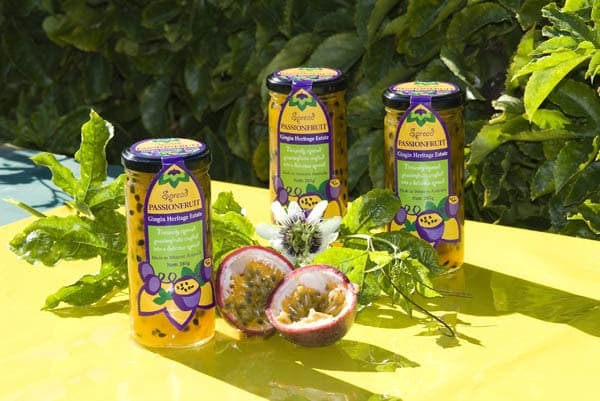Maggie Edmonds has been at the forefront of growing and promoting local produce in Western Australia for decades.
As one of the state’s most prominent olive farmers, her love for producing food followed the tradition of her mother’s farming family in Northern Ireland and a childhood spent in East Africa, surrounded by flowers and an abundance of fresh fruit.
Recently retired, Maggie’s career spanned decades of what others would consider “hard work”, but a way of life based in Western Australia that she never saw as “hard” or even as “work”.
Rather, it’s been a career with an ever-changing workplace. One in which you can never put off what needs to be done, but where you do get rewarded with an incredible sense of achievement.
Maggie’s also long been active across multiple agriculture associations and events, including organising WA’s first Olive Festivals, establishing the Gingin Regional Olive Growers Association and serving as president of the International Protea Association.
After winning the 2008 WA AgriFutures Rural Women’s Award (formally RIRDC), and ultimately National Runner-Up, Maggie went on to open her own fresh produce stall, called Maggie’s Place. She saw it as an opportunity to promote local growers and it became widely known across the region.
Women’s Agenda spoke with Maggie about her ongoing love for the agricultural way of life, and her commitment to promoting local producers.
You’ve been involved in agricultural practices for over 3 decades. Can you tell us what these farming activities involved, and what the agricultural way of life meant to you?
I could not have been involved in farming without my husband having the money to buy a farm when we emigrated to WA in 1983. I had always been attracted to the land, possibly partly because my mother’s Family are farmers in Northern Ireland. I always loved plants and flowers. I might have started a new craze aged 7 when I curled my Mum’s hairy cacti with my dolly’s curlers. Our house during my childhood in East Africa overflowed with vases of fresh flowers and fruit was prominent in our diet. Mum grew it all in our large garden.
Farming activities in WA included growing export proteas, sweet potatoes, passionfruit and olives. The agricultural way of life provided an ever-changing workplace, with the seasons dictating what daily activities were. There was nothing glamorous about our farming- it was just a question of getting the jobs done each and every day. The sensory thrill was intense: the beauty in the flowers and the delicious fruit.
Farming doesn’t allow you to avoid or fail to do something that requires action now! It has to be done or, for instance, the crop could be lost.
Life was uncomplicated on the farm, which is the way I like it to give brain space for clarity of thought. Mostly you didn’t have people meddling in your activities and creating unnecessary hurdles. Your focus was on your goals and the quiet satisfaction of achieving them. A huge pile of packed flower boxes ready for dispatch, or bags of fragrant passionfruit or fresh olive oil bottled ready for sale – you can’t beat that sense of achievement.
So, the agricultural way of life and being connected to all aspects of the land and the environment is precious. You can’t buy it – you create it and in turn it creates you as the person you are.
Can you tell us a little bit about your transition from farmer to stall-holder?
Producing passionfruit and olives with my husband on our last farm involved lots of physical work. Now, when people ask what we did, I often hear it called ”hard work”. I never considered it as ‘work’ or ’hard’.
This way of life was the sheer joy and challenge of producing something that enriched other people’s lives. Our produce was valuable and we had grown it.
So, moving from producing on the farm to selling other farmers’ delicious products in my farmstall, Maggie’s Place, in the Swan Valley near Perth, held the same joy for me. I collected the fruit and veggies directly from the farms each week, and heard the challenges these farmers faced. I could pass on the ups and downs of farming to my customers and give them a sense of the efforts and skills that my producers embraced to grow edibles needed by us all to survive. I was a voice for the farmers.










